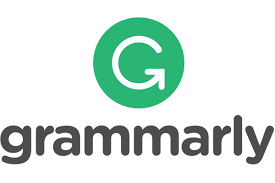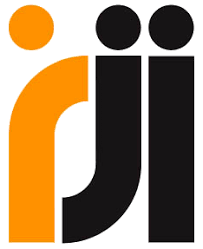UJI AKTIVITAS ANTIBAKTERI EKSTRAK DAUN MIMBA, SAMBANG DARAH DAN NILAM TERHADAP MYCOBACTERIUM TUBERCULOSIS
Abstract
Abstract
Tuberculosis (TB) is a disease main cause of death in the world. According to WHO in 2013, there were 8.6 million TB cases.. TB is a disease caused by a complex Mycobacterium tuberculosis infection. In general, TB disease is treated using Anti Tuberculosis (OAT) drugs such as Rifampicin and has not been found with many medicinal plants or herbs. From medicinal plants or herbs, there are activities which inhibit Mycobacterium tuberculosis. This study used laboratory experimental methods including maceration of mimba's leaf, nilam's leaf and sambang darah's leaf in 70% ethanol. Then the antibacterial activity was tested with a negative control comparison standard. The independent variables, namely the concentration of extract mimba's leaf, nilam's leaf, sambang darah's leaf, and the dependent variable, namely the growth of colonies from Mycobacterium tuberculosis. Based on data analysis, 3 extracts are statistically significant differences. Third-week monitoring (3) showed that the results of data were normally distributed and the significant value in the ANOVA test was 0.001 <0.05, so it could be concluded that there was a significant difference in the average percentage of colony inhibition in each treatment group. In the LSD test, it was known that the combination of extract nilam's leaf and extract sambang darah's leaf (group F) 125µg / ml had the largest average value of inhibition of colony inhibition with 71.4% of colony inhibition percentage.
Keywords: extract mimba's leaf, extract nilam's leaf, extract sambang darah's leaf, mycobacterium tuberculosis
Abstrak
Tuberkulosis (TBC) merupakan salah satu penyakit menjadi penyebab utama kematian di dunia. Prevalensi tuberkulosis di Indonesia cukup tinggi, pada tahun 2009 terdapat 1,7 juta orang meninggal karena TBC. TBC adalah penyakit yang disebabkan oleh infeksi Mycobakterium tuberkulosis komplex. Pada umumnya penyakit TBC di obati menggunakan Obat Anti Tuberkulosis (OAT) seperti Rifamicin dan belum banyak ditemukan dengan tanaman obat atau herbal. Dari tanaman obat atau herbal dicari aktivitas yang menghambat Mycobacterium tuberculosis. Penelitian ini menggunakan metoda eksperimental laboratorium meliputi maserasi daun mimba, daun nilam, dan daun sambang darah dalam etanol 70%. Kemudian diuji aktivitas antibakteri dengan baku pembanding kontrol negatif. Variabel bebas, yaitu konsentrasi ekstrak daun mimba, daun nilam dan daun sambang darah yang diujikan, dan variabel terikat , yaitu pertumbuhan koloni dari Mycobacterium tuberculosis. Berdasarkan analisa data, terdapat 3 ekstrak kombinasi yang berbeda signifikan secara statistik. Monitoring minggu ketiga (3) menunjukkan hasil data terdistribusi normal dan nilai signifikansi pada uji ANOVA adalah 0,001<0,05, sehingga disimpulkan bahwa ada perbedaan signifikan rata – rata prosentase hambat koloni pada masing-masing kelompok perlakuan. Pada uji LSD diketahui kombinasi ekstrak daun nilam dan daun sambang darah (kelompok F) 125µg/ml memiliki nilai rata-rata prosentase hambat koloni terbesar dengan prosentase hambat koloni 71,4%.
Kata Kunci : ekstrak daun mimba, ekstrak daun nilam, ekstrak daun sambang darah, mycobacterium tuberculosis
Downloads
Copyright (c) 2019 eko julianto

This work is licensed under a Creative Commons Attribution-ShareAlike 4.0 International License.
Please find the rights and licenses in Mahakam Nursing Journal. By submitting the article/manuscript of the article, the author(s) agree with this policy. No specific document sign-off is required.
- License
The non-commercial use of the article will be governed by the Creative Commons Attribution license as currently displayed on Creative Commons Attribution-NonCommercial-ShareAlike 4.0 International License.
- Author(s)' Warranties
The author warrants that the article is original, written by stated author(s), has not been published before, contains no unlawful statements, does not infringe the rights of others, is subject to copyright that is vested exclusively in the author and free of any third party rights, and that any necessary written permissions to quote from other sources have been obtained by the author(s).
- User Rights
Mahakam Nursing Journal's spirit is to disseminate articles published are as free as possible. Under the Creative Commons license, Mahakam Nursing Journal (MNJ) permits users to copy, distribute, display, and perform the work for non-commercial purposes only. Users will also need to attribute authors and Mahakam Nursing Journal (MNJ) on distributing works in the journal and other media of publications.
- Rights of Authors
Authors retain all their rights to the published works, such as (but not limited to) the following rights;
- Copyright and other proprietary rights relating to the article, such as patent rights,
- The right to use the substance of the article in own future works, including lectures and books,
- The right to reproduce the article for own purposes,
- The right to self-archive the article,
- The right to enter into separate, additional contractual arrangements for the non-exclusive distribution of the article's published version (e.g., post it to an institutional repository or publish it in a book), with an acknowledgment of its initial publication in this journal (Mahakam Nursing Journal (MNJ)).
- Co-Authorship
If the article was jointly prepared by more than one author, any authors submitting the manuscript warrants that he/she has been authorized by all co-authors to be agreed on this copyright and license notice (agreement) on their behalf, and agrees to inform his/her co-authors of the terms of this policy. Mahakam Nursing Journal (MNJ) will not be held liable for anything that may arise due to the author(s) internal dispute. Mahakam Nursing Journal (MNJ) will only communicate with the corresponding author.
- Royalties
Being an open accessed journal and disseminating articles for free under the Creative Commons license term mentioned, author(s) aware that Mahakam Nursing Journal (MNJ) entitles the author(s) to no royalties or other fees.
- Miscellaneous
Mahakam Nursing Journal (MNJ) will publish the article (or have it published) in the journal if the article’s editorial process is successfully completed. Our Editors may modify the article to a style of punctuation, spelling, capitalization, referencing and usage that deems appropriate. The author acknowledges that the article may be published so that it will be publicly accessible and such access will be free of charge for the readers as mentioned in point 3.












